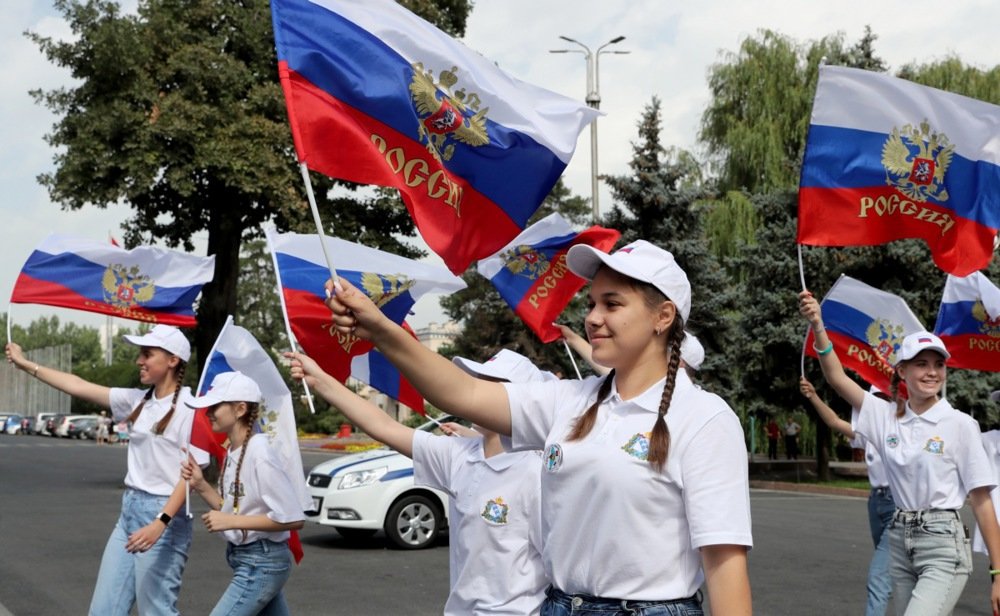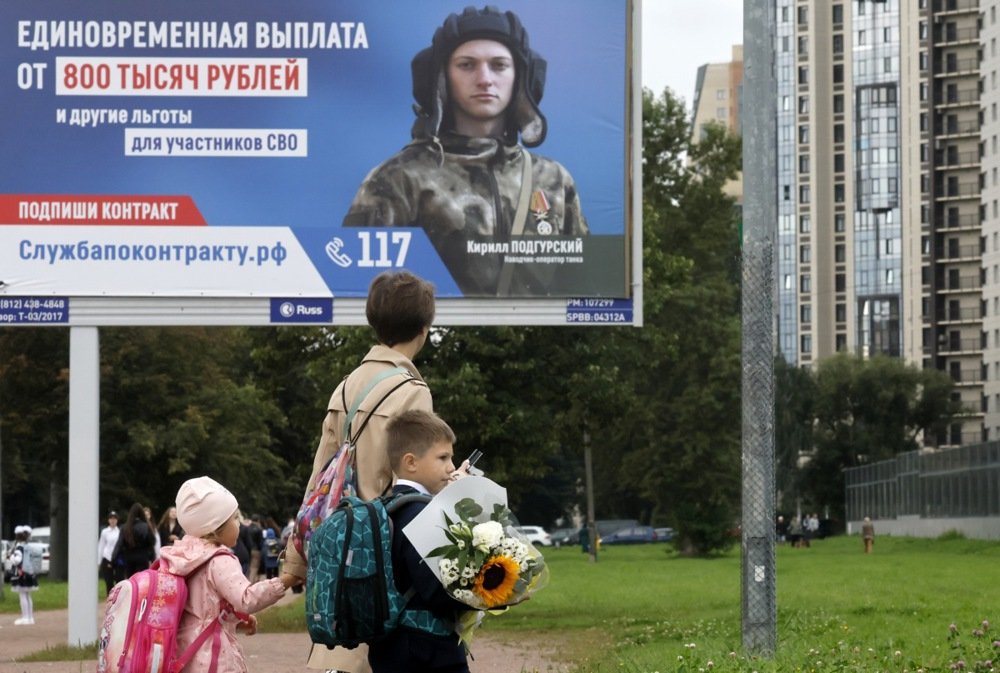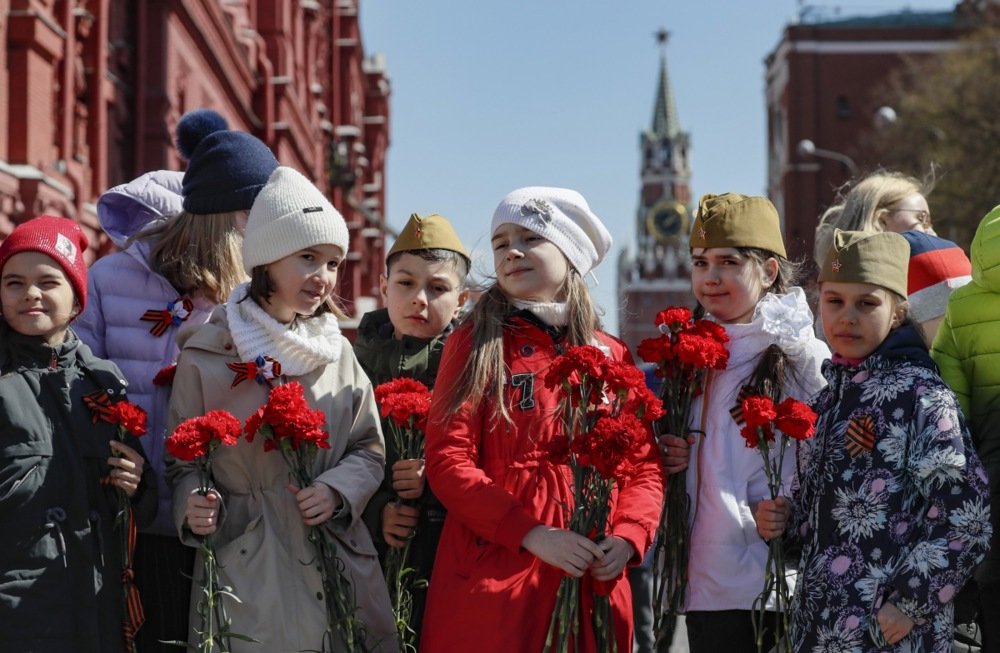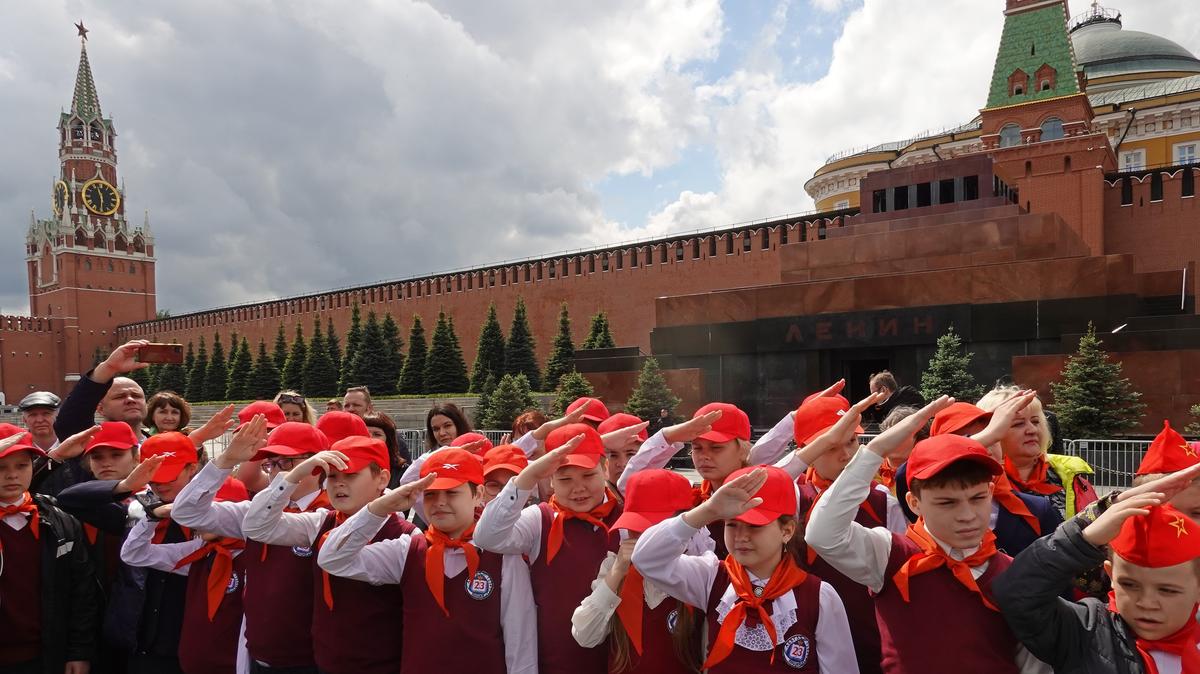Designed to instil values such as sexual abstinence before marriage and a patriotic commitment to having as many children as possible afterwards, an optional new subject on the Russian school curriculum euphemistically named Family Studies appeared to coincide with the beginning of the academic year earlier this month. How did Russia arrive at a point where “traditional family values” have become part of the school curriculum?
All happy families are alike
Family Studies appeared on the school curriculum for the 2024 school year, in some Russian schools, at least. The purpose of the course is to “introduce young people to the traditional system of family values” and to “create pro-family attitudes around marriage, child-rearing and chastity”.
The optional course consists of 34 hours of teaching and is taught as an extracurricular activity, just like propaganda initiative Important Conversations, which was introduced by the Russian government in September 2022 to “boost patriotism” among Russian school children.
While there’s no standardised textbook for the course, with it being left to individual teachers to decide how to structure the lessons, there is a general outline, covering the ins and outs of how and why to create a family, and family law, among other family-related matters.
In the few schools that have already begun teaching the subject, the lessons resemble propaganda far more than education. Teachers in one school in the republic of Chuvashia, in the Volga region, said pupils had discussed the “spiritual and moral values of the family”, while another school in the republic said its pupils had drawn up a “code for a happy family”.
Meanwhile, teachers in Moscow schools who spoke to Novaya Europe on condition of anonymity said that there would most likely be no Family Studies lessons in the city at all this year.

Russian children carry national flags during the 10th International Ethnic Festival in Bishkek, Kyrgyzstan, July 2022. Photo: EPA-EFE/IGOR KOVALENKO
The demographic situation in Russia is steadily deteriorating, prompting authorities to promote the idea that “large Russian families should become the norm and a key value for society”.
Russian births have decreased every year since 2016. The reasons are less to do with the war and mobilisation and more closely connected to the “echo of the 90s” — a decrease in the number of women of reproductive age. That decline was due, in turn, to a sharp drop in fertility that began in 1987 and high mortality rates in the early 1990s, which led to what demographers later called the “Russian cross”: the phenomenon when the number of deaths exceeded the number of births between 1992 and 2013.
In the first half of 2024, 599,600 children were born in Russia, the lowest figure since 1999. In the same period, 325,100 people died, 49,000 more than in the first six months of 2023. In short, the demographic situation is steadily deteriorating, which is why the Russian authorities have felt the need to promote so-called traditional values and to promote the idea that “large Russian families should become the norm and a key value for society”.
Deputy Justice Minister Vsevolod Vukolov last year called one of the ministry’s main tasks “to protect traditional values” from “alien propaganda” he said was as much of a problem as alcohol and drugs. He also warned of threats coming from “the spread of LGBT ideology, gender reassignment, a new feminist culture, and childlessness, all of which have an impact on young people and lead to the degradation of the population.”
“Sex reassignment via hormone therapy is allowed in many European countries and is available to minors in the US already. Germany has several genders. It is extremely important for us to maintain our own approach,” Vukolov continued.

Russian schoolchildren walk past a poster showing a military conscription ad in Moscow. Photo: EPA-EFE/ANATOLY MALTSEV
Voluntary-compulsory Orthodoxy
The first attempt to introduce so-called traditional values to the Russian school curriculum came about in 2010, when a textbook called Fundamentals of Religious Cultures and Secular Ethics appeared in schools in several Russian regions as part of a pilot scheme, only for it to come in for widespread criticism.
“The textbook aims to impose in an aggressive, evangelistic, coarse way a religious ideology on pupils which is in flagrant opposition to the concept of a secular state,” Andrey Smirnov, a philosophy professor at the Russian Academy of Sciences, wrote at the time.
Nevertheless, the subject was introduced nationwide in 2012, broken up into six optional modules: Fundamentals of Orthodox Culture, Fundamentals of Islamic Culture, Fundamentals of Buddhist Culture, Fundamentals of Jewish Culture, Fundamentals of World Religious Cultures and Fundamentals of Secular Ethics.
In practice, there was rarely any choice for pupils, with their teachers making the decision to select Fundamentals of Orthodox Culture themselves. Even in schools where there technically had been a choice, and Secular Ethics had been selected, the module ended up being replaced by Orthodox Culture anyway, according to parents who took to online forums to share their experiences.
“When the Fundamentals of Orthodox Culture was suddenly brought in, parents whose children were Muslims, say, rebelled,” one schoolboy, Igor, recalls. “We had children from various backgrounds: Tatar, Tajik. Atheist parents also rebelled, because their children now had to sit through 45 minutes of a compulsory subject when they weren’t religious at all.”

Russian children attend victory day celebrations in Moscow, May 2022. Photo: EPA-EFE/YURI KOCHETKOV
The science of morality and virginity
Once religion had snuck onto the curriculum, there was periodic discussion of the need to teach Family Studies too.
Schools in 60 Russian regions introduced an optional high school subject, Moral Basics of Family Life, in 2017. The course, which was drawn up by a priest and a nun, aimed to “introduce high school students to the fatherland’s traditional system of family values and prepare them to create strong and happy families”.
Sex education barely got a mention, though there was a passing reference to contraception, noting that it “killed love, making it sterile and unreal”.
The textbook raised as many questions as it answered. While one school in the central Kostroma region asserted that the course would encourage pupils to be “firm in their Orthodox faith” and help them to distinguish between “extramarital and premarital” relationships, sex education barely got a mention, though there was a passing reference to contraception, noting that it “killed love, making it sterile and unreal”.
While the textbook did have a chapter called The Science of Virginity, which promoted abstinence, it also included problematic statements and even argued that men had a broader “mental range” than women.
Though the course was never compulsory, the ideas that underpinned it never fully went away and Family Studies became part of the social studies curriculum in 2021. According to the chair of the Union of Orthodox Women, Natalia Dmitrievskaya, the change in the curriculum has had a positive effect on schoolchildren in the Volga region city of Samara. “The situation has improved. The number of 10th-graders not wanting to start a family has halved. The number of those wishing to create a large family has more than doubled. The number of people wanting to marry once and for life has increased from 49% to 85%.”
That said, surveys carried out by the Russian Public Opinion Research Centre cast doubt on whether young people really do prioritise marriage and a family life, suggesting those came in third on the list of priorities after buying an apartment and buying a car.
“Some organisation telling us exactly what a family is is fascism.”
Family Studies finally became a subject in its own right in 2024. Quite aside from the obvious ideological bias, it can be criticised for all the same reasons as its previous iterations, and says nothing about contraception or sexually transmitted diseases.
“This is bad for many reasons,” psychologist Tatyana Chuvilkova told Current Time TV. “If a child doesn’t learn about anatomy, physiology, where children come from, their own health and bodily boundaries from reliable sources, they’ll learn about it who knows where, in a potentially uncontrolled environment.”
“Some organisation telling us exactly what a family is is fascism,” says schoolteacher Dima Zitser. “And I’m not overstating it.”
Sociologist Olga Isupova was sceptical when it came to the state’s chances of success, telling Forbes that when it came to imposing “traditional” values and attempts at demographic stimulation, “The modern way of life and people’s reproductive intentions are already well-established and these will be the same for their children. No ideology or prohibition will greatly increase the birth rate.”
Join us in rebuilding Novaya Gazeta Europe
The Russian government has banned independent media. We were forced to leave our country in order to keep doing our job, telling our readers about what is going on Russia, Ukraine and Europe.
We will continue fighting against warfare and dictatorship. We believe that freedom of speech is the most efficient antidote against tyranny. Support us financially to help us fight for peace and freedom.
By clicking the Support button, you agree to the processing of your personal data.
To cancel a regular donation, please write to [email protected]

